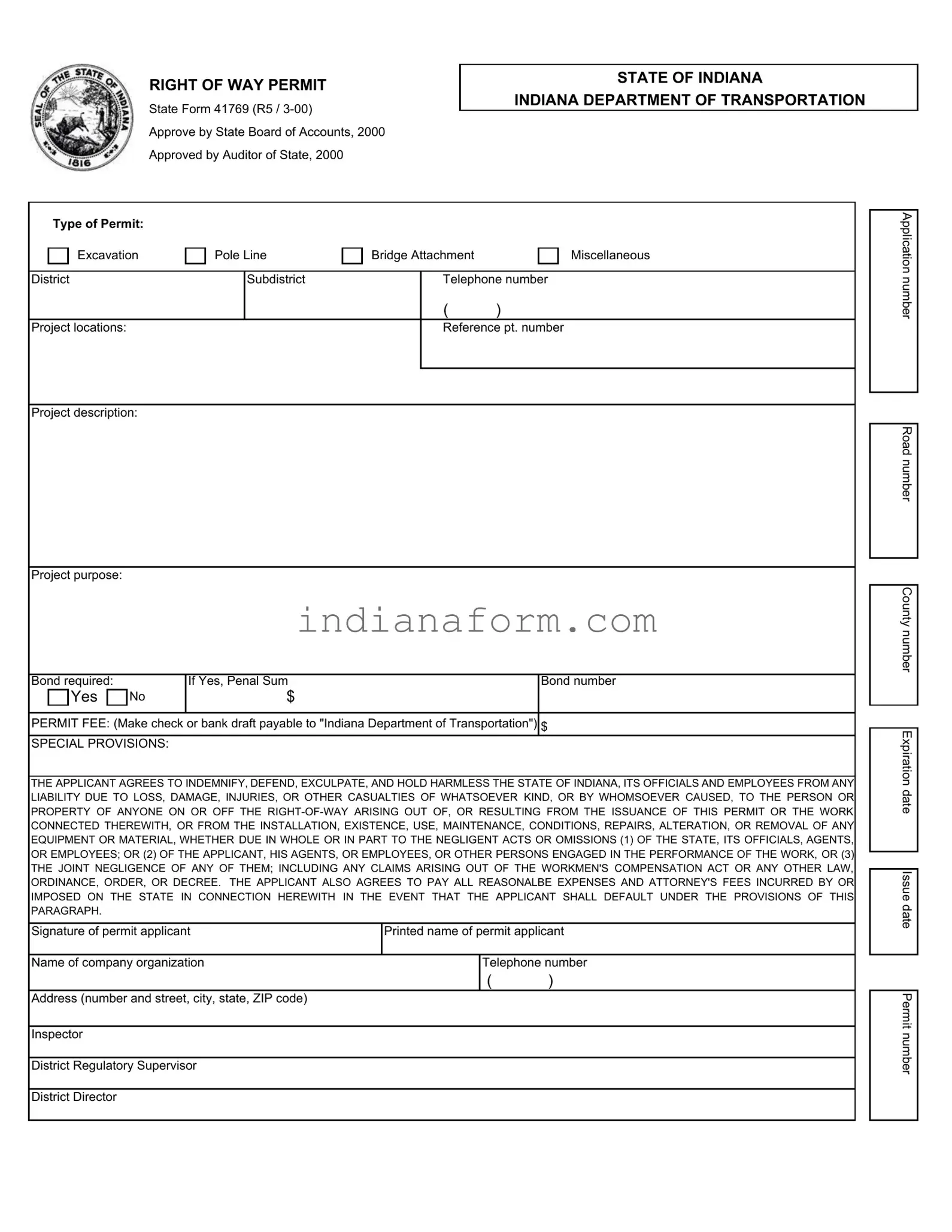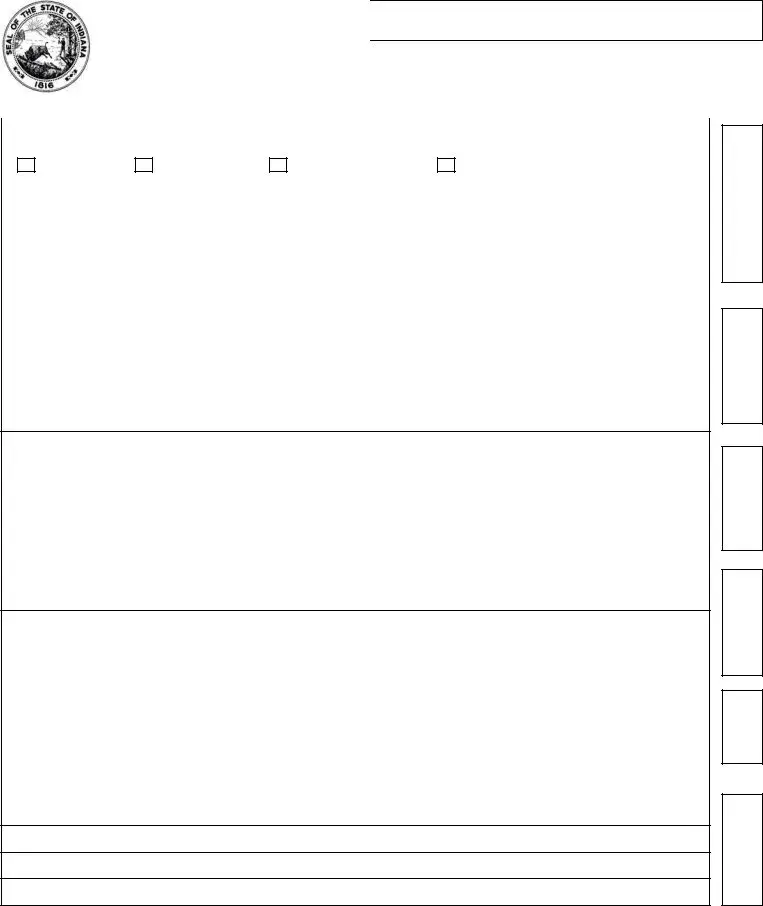State of Indiana
Department of Transportation
GENERAL PROVISIONS
1.All work described in the permit shall be subject to the inspection of the Department of Transportation and the permittee shall adjust or stop operations upon direction of any police officer or Department of Transportation employee.
2.The permit may be rescinded at any time by the Department of Transportation at its discretion or for noncompliance with any and/or all provisions of said permit.
3.The permittee shall notify the Department of Transportation Subdistrict five (5) working days preceding the beginning of any work activity.
4.The permittee shall notify the Department of Transportation Subdistrict that the work is complete and this notice is to be provided within seven (7) days from completion of all work on this permit.
5.The permittee shall have the permit complete with drawings and special provisions in their possession during work operations and will show said permit on demand, to any police officer or authorized Department of Transportation employee.
6.The permittee shall pay the Department of Transportation for any inspection costs where it is necessary to assign a Department of Transportation employee to inspect the work. The permittee shall immediately reimburse the State upon receipt of an itemized statement.
7.The permit is valid through the stated expiration date. If work is not completed within the allotted time, the permit is automatically cancelled unless an extension is requested prior to the expiration date and said request is approved by the Department of Transportation. If a permit is cancelled, a new application must be submitted and approved before the proposed work can be accomplished.
8.The permittee shall erect and maintain all necessary signs, barricades, detour signs, and warning devices required to safely direct traffic over or around the part of the highway where permitted operations are to be done so long as the work does not interfere with traffic, in accordance with Section “VI” of the Indiana Manual of Uniform Traffic Control Devices.
9.All construction and materials used within the highway right-of-way must conform to the current Department of Transportation “Standard Specifications” with the permittee being considered in the same status as the contractor.
10.The permitted operations shall not interfere with any existing structure on the Department of Transportation right-of-way without specific permission in writing from the Department of Transportation. In the event that any buildings, railings, traffic control devices, or other structures are damaged, said cost of the removal and/or damage shall be borne by the permittee.
11.This permit does not apply to any State roads or bridges that are closed for construction purposes, or to any county roads or city streets.
12.Approval of the permit application shall be subject to the permittee obtaining all necessary authorizations from local authorities and complying with all applicable laws. The issuance of the permit shall in no way imply Department of Transportation approval of, or be intended to influence any action pending before a local board, commission, or agency.
13.The permitted operations shall be allowed on state highway right-of-way only between sunrise and sunset and shall not be performed on Saturdays, Sundays, or during the period beginning at 12:00 Noon on the last weekday (Monday through Friday) preceding and continuing until Sunrise on the day following: New Years Day, Memorial Day, Independence Day, Labor Day, Thanksgiving, and Christmas.
14.In accordance with the notice requirements of Indiana Code 4-22-1-25, any objection to the conditions and provisions of an approved permit must be submitted in writing to the Department of Transportation within fifteen (15) days from the issue date.


